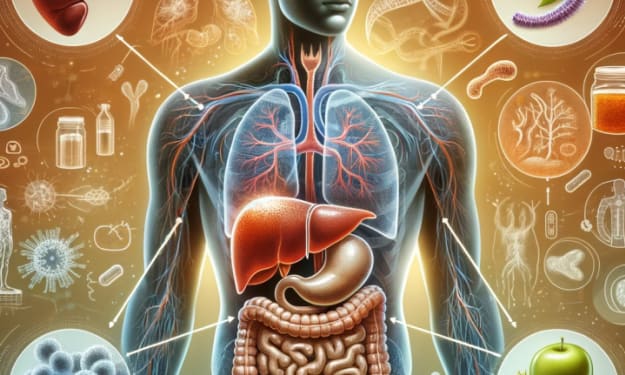Empower Your Health: The Ultimate STD Testing and Lifestyle Guide
Benefits of Maintaining Good Sexual Health

STD testing is a pivotal aspect of health in the modern world. As a result, being aware of the STD testing process will help you live a proper life. STD testing is not only about finding out whether you have STD or not. It’s also about being aware of your health situation and using this knowledge for self-care and healthy behavior decisions. A detailed analysis explaining why it is essential to undergo STD tests periodically, the procedures adopted, and how it contributes towards a good sex life.
Importance of Regular STD Testing
One can easily come across Sexually transmitted diseases (STDs) more so because they are more prevalent than we imagine. These infections show how important it is to have regular testing as an essential element of the preventive health approach. Not all those who undergo STD testing are those involved in indulgent activities, but just any responsible and sexually healthy individual. Why, however, is it so essential?
Therefore, testing for STDs periodically is crucial in detecting them at an early stage so that it can be treated. There are several diseases, including STD, where the disease persists and is asymptomatic for a good number of hours and years before manifesting signs of the disease. Early diagnosis enables prompt administration of medication, stopping problems that may occur as well as preventing the spread of infection to others.
In addition, knowing your HIV status is imperative in building healthy relationships. The key to protecting your health as well as that of your partners is through open, frank communication with them. One should respect oneself and show concern for one’s partner by having the initiative to undergo regular testing.
Can you live a healthy life with STDs?
The correct medical care, responsible behavior, and open communication can make it possible for individuals suffering from STDs to live an enjoyable life. Treatment of these STDs will sometimes involve management or complete cure in certain cases whereas other times it could need lifelong care. Healthcare workers should engage people on adherence, treatment, and measures to avoid transmission. However, you also need open talks with a partner, safety precautions, as well as regular tests – only then can you assure yourself of both your own health and healthy relationships. STDs do not have to be a death sentence in life if the concerned people are approached correctly and provided with proper healthcare.
How Do Healthcare Professionals Conduct STD Testing?
STD testing is usually a smooth, simple procedure with minimal pain for the patient. However, depending on the STD, several methods can be employed. Blood tests, urine tests, swab tests, and physical exams are among the most commonly used testing methods.
When it comes to diseases like HIV, syphilis, or herpes, blood tests are the most popular means of diagnosis. The tests discover the antibodies made by your body due to a disease.
Currently, the most commonly used is a urine test for the diagnosis of chlamydia and gonorrhea. The tests are easily done and do not need any blood samples; they produce very precise test results.
As part of swab tests, there is a requirement for the collection of samples from areas such as the throat, genitals, and rectum, respectively. Afterward, these sample undergoes the examination for infection like HPV as well as genital herpes.
Sometimes physical examinations such as visual inspection among others may be required for identification of other STD symptoms These tests could also include checking for genital warts and skin lesions.
Do Normal Blood Tests Show STDs?
Although there are some things that can be ascertained by blood tests at your annual appointment, such results do not usually encompass STD testing. However, in order to test for STDs, specialized STD tests must be employed. As such, one must actively request certain STD testing in order to facilitate screening for these illnesses and conditions. Do not believe that a simple blood test will determine whether or not you have an STD; speak truthfully about your sexual life with the doctor in order to make sure he addresses it correctly.
Should you get STD tested in a long-term relationship?
STD testing in long-term relationships comes up as an issue on many occasions. Trust and commitment are important, but relationship dynamics may shift over a period of time. Taking regular tests is one way of being responsible towards the other partner because this gives confidence that he or she knows your status. Open communication and mutual testing on both sides may also reinforce such a relationship, provide peace of mind, and assure the couple of commitment to each other’s welfare.
Benefits of Maintaining Good Sexual Health
Taking care of your sexual health is not only about the prevention and treatment of STDs but also about improving your general well-being in life. Here are a few key benefits:
Peace of Mind: It is possible for you to avoid stress and worry because you know that you are healthy by knowing your STD condition. This means that you can live with the belief that you are doing something to maintain your safety and health.
Healthy Relationships: Frequent and open communication along with constant testing creates mutual trust and strengthens the relationship. It is one way of considering and considering and showing respect for your partner by being honest with them on their sexual health status.
Preventing Complications: Treatment of STDs is vital because early interventions help in stopping chronic diseases. Such interferences will be timely, leading to effective management of the resultant infections.
Responsible Choices: Knowing about your STD status allows you to undertake actions towards protecting yourself by deciding on protected sex or abstaining. This means you have power over your sexual health while behaving responsibly.
Reducing Transmission: Besides benefitting you, it is good for public health because as you test yourself regularly you reduce chances of spreading STDs to others. Taking control of your sexual health contributes to the healthy state of the entire society.
It is important to test for STDs because that is what it means to live well and have a good healthy and enjoyable life. Doing regular tests, and learning what they entail and why they are important for your well being will help you to be in charge of your life and make wise lifestyle choices. Let me remind you that your sexual health is just as important as your general good health, so make sure to get regularly tested for STDs.
Hence, do you remember when you were last tested for sexually transmitted diseases? It is your good health and that of those who surround you.
FAQ 1: What is STD testing, and why is it important?
STD testing, also known as sexually transmitted disease testing is a way of identifying if one is infected by illnesses that are transmittable via sexual intercourse. This is crucial since most STDs are asymptomatic, and the affected persons might not notice the problem but they can spread it among others. Regularly test for STDs as this aids in their early detection, and treatment and also prevents the spread of them.
FAQ 2: How often should I get tested for STDs?
Your testing frequency will depend on how sexually active you are and the type or number of STD-related risks. People who have multiple sex partners should test themselves for STDs at least annually. For instance, people who fall into the high risk category including those with new and multiple partners should be tested more often. You need to be tested before entering into a new sexual relationship too.
FAQ 3: What should I expect during an STD testing appointment?
Based on the STD tests requested, a healthcare provider will take samples during a testing appointment. It will include taking a blood sample, collecting a urine specimen, swabbing selected sites, and examining physically for some signs. This would involve a very specific set of procedural steps dependent on test requirements. The process often takes a few minutes, and it is mostly painless. Your doctor should not make you feel embarrassed or uncomfortable during such tests.
FAQ 4: Do I need to ask for STD testing specifically, or is it included in routine check-ups?
Ordinary blood examination and provisional examination don’t usually include STD testing. Your healthcare provider will generally prescribe it as required. Remember to talk about your sex life and your concerns with your doctor so he will be able to suggest appropriate tests that fit well your case.
FAQ 5: What happens if my STD test results are positive?
A positive result on an STD test just indicates the presence of an infection in your case. Depending on the kind of infections as well as their extent, the subsequent actions will be taken. Often, this can be managed and cured through available medications. you should stick to what your healthcare provider advises you, make sure to talk to all your potential sex partners beforehand, and try your best not to infect anyone else. Your Provider will also advise you on how to stay safe with sexual activity henceforth.
“Disclosure: Some of the links are affiliate links! If you click through and make a purchase, I’ll earn a commission, at no additional cost to you “
About the Creator
Chef Weight
Giving advice on healthy food, diet, weight loss, life tips.
👉Join our COMMUNITY www.chefweight.com
WISHING YOU HEALTH & HAPPINESS






Comments
There are no comments for this story
Be the first to respond and start the conversation.